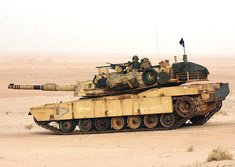Featured Quizzes
User Quizzes
Create Quiz
Data and Charts
Badges and Games
About JetPunk
JetPunk Shop
Dark Mode

Top 30 Most Powerful Militaries
Name the countries with the the most powerful military forces on the planet.
According to the website Global Firepower
Demographic and economic data is a factor, non-conventional weaponry (nukes) is not
Rate:
Featured Quiz
Last updated: December 16, 2020
You have not attempted this quiz yet.
More quiz info >>
| First submitted | January 23, 2013 |
| Times taken | 150,141 |
| Average score | 80.0% |
| Rating | 4.56 |
3:00
Enter country here
0
/ 30 guessed
Time Used
00:00
Best Time
00:00
The quiz is paused. You have remaining.
Scoring
You scored / = %
This beats or equals
% of test takers
also scored 100%
The average score is
Your high score is
Your fastest time is
Keep scrolling down for answers and more stats ...
|
|
|
New and Popular
Save Your Progress
Are you a bigot?
Quiz series by kalbahamut
...
Copyright H Brothers Inc, 2008–2024
Contact Us | Go To Top | View Mobile Site

*sad British noises*
I suspect that this measure is rated as a better one than most because of the of the sheer number of variables it accounts for, from an impressive set of data. It’s clearly one of the best as a quantitative analysis, but therein lies its inherent and unavoidable flaw: in the real world, there are far too many variables which can’t be quantified and fed into algorithms. For example, how could they quantify the UK’s relative advantage over France as an island; or, how much advantage does Switzerland gain by being surrounded by Alps? What role does morale play in conflict, or home advantage? Relative competence/experience amongst the general staff? Some things, you just can’t assign a number to.
I already said that they would not be kicked off the list. Even if their position may, and probably should, be revised downward... which... maybe wouldn't even require any special exceptions or adjustments to the algorithm that GFP uses to generate the list if you consider the staggering number of losses Russia has suffered in terms of equipment and personnel... simply adjusting the stats and reapplying the algorithm would do that.
As for their campaign of war crimes in Ukraine... I don't know what you count as a "win" for them, especially given that their starting objective was to take over Kyiv within a couple of weeks and dominate the entire country probably within a month, installing some kind of obedient Russian puppet government there that would agree to recognize Russian annexation of Crimea and "independence" of Russian puppet states in the Donbass...
No idea where you're getting your information about stagnant territory movements (with Russians retreating all over the place lately, even from territory Moscow claims to have annexed), or the casualties being "generally even" (with Russian losses recently eclipsing 90,000, according to non-Russian media). Ukraine obviously has the momentum currently and Russia has been thoroughly humiliated.
But there's no way anyone being serious could call this anything other than a complete and total disaster for Russia the likes of which the world has rarely even seen before. Hard to think of anything at all recent that was even comparable. Going back into history there are more examples... Agincourt... Thermopylae... The Battle of Britain... the Russo-Japanese War, or perhaps the American Revolution. But even if Russia carves out some kind of victory after everything else that has happened, this will still go down as one of biggest muck-ups in military history, with one side getting absolutely spanked by an inferior enemy.
Amazing quiz!